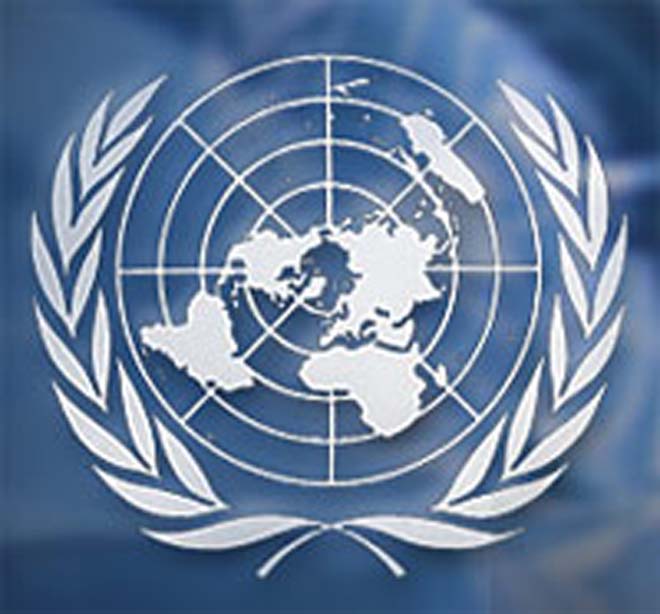Azerbaijan, Baku, June 8 / Trend T.Konyayeva /
The new resolution of the UN Security Council to toughen sanctions against Iran will be adopted, but will not bring to the desired result, the sanctions and embargo will be ineffective, experts say.
"The sanctions as they are presented in the UN vote will not be effective as they are not powerful," Meir Litvak, Professor at Tel Aviv University's Moshe Dayan Center for Middle Eastern and African Studies, wrote to Trend in an e-mail.
The voting at the UN Security Council on the new draft resolution on Iran could take place today, June 9, Reuters reported. U.S. Secretary of State Hillary Clinton said to press conference in Quito (Ecuador) said that UN Security Council's new draft resolution provides such severe sanctions that have never been imposed on Iran.
Security Council members have agreed upon a list of companies and individuals against whom sanctions will be imposed. A total of 41 Iranian legal entities will be named in the list, Reuters reported.
According to information provided by the New-York Times with reference to the diplomats at the UN Security Council in early March, the main proposals are the introduction of new restrictions against Iranian banking, insurance systems, navigation, etc.
U.S. military expert Ted Galen Carpenter has no doubts that the resolution will pass and thinks that the latest round of sanctions will likely prove as ineffective as the previous rounds.
"The Iranian government regards the nuclear program as a high-priority policy, and sanctions have a dismal historical track record in getting regimes to abandon high-priority policies," Ted Galen Carpenter, vice president for defense and foreign policy studies at the Cato Institute wrote Trend in an e-mail.
The draft resolution on possible additional sanctions against Iran was discussed by representatives of the six mediators to resolve the situation around the Iranian nuclear program (five permanent members of UN Security Council and Germany). The U.S. and other Western countries accuse Iran of developing nuclear weapons for military purposes under the guise of peaceful nuclear energy program. Tehran denies the charges, saying that its nuclear program is aimed solely at meeting the country's electricity needs.
The U.N. Security Council adopted five resolutions in connection with the suspension of Iran's nuclear program. Three involve the use of economic and some political sanctions on Iran.
Carpenter believes there is a very remote chance that in addition to Turkey and Lebanon, either Nigeria or Uganda might vote against the resolution, or at least abstain. There is also a remote possibility that China might ultimately choose to abstain, he said.
Adoption of the resolution in the UN Security Council requires two conditions: "no" (so-called veto) none of the five permanent members (Russia, China, USA, France, UK) should not vote and a document should receive no less than nine out of 15 votes favor. If Russia and China will abstain, much will depend on the ten non-permanent members.
Most likely, Brazil will either abstain or vote against the resolution, Carpenter said.
Two countries entering the non-permanent basis of the UN Security Council Brazil and Turkey officially earlier expressed its negative attitude to possible sanctions.
During his two-day visit to Iran in April, Brazilian Foreign Minister Celso Amorim said that pressure from other countries do not have any impact on the willingness of Brazil to support Tehran's peaceful nuclear program, adding that "imposing new sanctions will not lead to "any positive results".
"Washington hopes that Brazil will, however reluctantly, vote for the measure, but it would be a surprise (and an unpleasant one for Iran) if the Lula government adopted that position," Carpenter said.
However, the statement about treating a new round of sanctions "with respect" indicates that Brazil will not do anything to undermine the resolution once it passes, he added.
Contrary to the opinion of the Israeli and American experts, Professor at the University of Glasgow Reza Taghizadeh believes that imposing new restrictions, especially against the Iranian banking sector, will seriously damage the oil and gas sector in the country.
"The results of the embargoes and sanctions imposed on Iranian banks are that the daily volume of exports of Iranian oil is less than two million barrels (the lowest figure over the last 10 years), the volume of oil production - 3.6 million barrels per day, 70 percent of Iranian oil tankers are not involved in Iran, because oil is not sold, Taghizadeh told Trend by telephone. - New sanctions will further complicate the situation and will cause even more damage to the energy sector."
Incomes from exports of oil and oil products are the main source of economic growth, monetary inflow and formation of the revenue of the public budget of Iran. 85 percent of foreign currency earnings and 75 percent of rial earnings in Iran is directly or indirectly related to the oil production.
According to Taghizadeh, the possibility that Brazil, Turkey and Lebanon will support a new resolution on Iran is very small, and most likely, they will refuse to vote.
"The United States supports the unanimous adoption of resolution by all members of the UN Security Council, because such a move would be a tough political message to Iran, but anyway the resolution will be adopted against Iran and applied by all countries, including Turkey and Brazil," he said.
D.Khatinoglu contributed to the article.
Do you have any feedback? Contact our journalist at [email protected]






